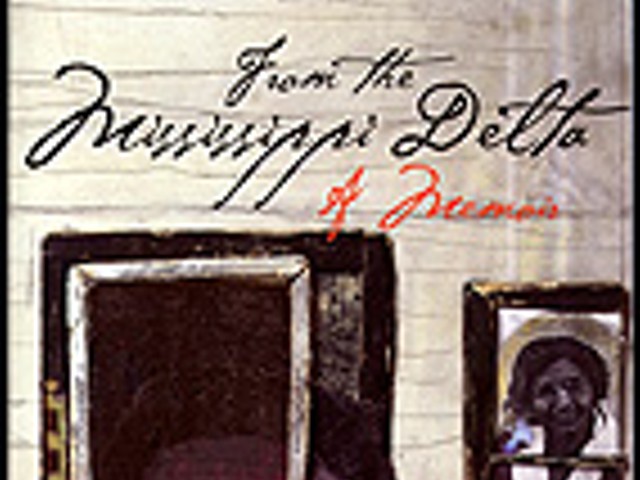The blueprint for director David Fincher’s brilliant controversy magnet, Fight Club, is Chuck Palahniuk’s 1996 debut novel, a howl of rage against the empty promises of American consumer culture.
The novel is narrated by a nameless insomniac who comes to discover that the safe middle-class life he has worked so hard to create is slowly suffocating him. Palahniuk puts him on a collision course with the charismatic and fearless Tyler Durden, who proposes a ritual of transcendence through pain:
Tyler said, "I want you to do me a favor. I want you to hit me as hard as you can."
I didn’t want to, but Tyler explained it all, about not wanting to die without any scars, about being tired of watching only professionals fight, and wanting to know more about himself. About self-destruction. At the time, my life just seemed too complete, and maybe we have to break everything to make something better out of ourselves.
This friendly brawl becomes the genesis of their underground "fight club," a place where white men like themselves, who grew up in a world too refined for violent rites of passage such as fistfights, could taste a little blood and find the power to reimagine their lives beyond the limited identity allotted to them.
"The fighting, the violence," says Chuck Palahniuk, "is all a metaphor for destroying how we see ourselves for the sake of creating something better. Because once we get stuck in an identity, it’s really hard to break out and create a new identity. This was just a metaphor for a way to live by a new paradigm."
"The fighting is absolutely metaphoric," agrees Edward Norton, who embodies the protagonist in Fincher’s Fight Club."Tyler doesn’t say, ‘Do me a favor, let me just hit you really good once,’" Norton continues. "He says, ‘Hit me.’ What’s not being proposed is deal with your frustration and numbness by exorcising it outward towards other people. It’s about an inwardly directed violence and an inwardly directed radicalism. The fight club is a metaphor for punching through the insulation that you’ve put up around yourself and experiencing pain, experiencing life as a purgative, as a way of starting to connect to the fact that you are not defined by the things around you."
Norton’s character does define himself by his possessions, a cocoon of brand names with their inherent promise of comfort and blissful fulfillment. It’s only after embracing the reckless existence of Tyler Durden (Brad Pitt, in one of his best performances yet) that he can look beyond his things and see himself.
"Acquiring things was not fixing the problem," Palahniuk says, "It was masking the symptoms. Going out and buying things didn’t solve the fact that I hated my job, but it felt sort of nice. I could come home to my little, tiny, perfect world and feel good for a moment instead of fixing the fact that I hated the whole rest of my life. That’s what consumerism becomes a lot.
"And so, writing about anti-consumer things," he continues, "just reflects a zeitgeist feeling. A lot of people who have worked really hard and have gotten to a point in their lives where they can buy things, now they’re going, ‘I’ve been working 25 years, and I thought this was going to be it, and this isn’t going to solve anything. This is just stocking up for my estate sale someday’."
"The line I go for," says Brad Pitt, "is ‘Advertising has us chasing cars and clothes, working jobs we hate so we can buy shit we don’t need.’ Meaning, we bought into a form of lifestyle, we bought into image, as if we would receive some sort of spiritual happiness though home furnishings."
Brad Pitt is the yang to Edward Norton’s yin in Fight Club, which David Fincher has constructed as an elaborate psychological battleground. The actors (Pitt had previously starred in Fincher’s Seven) spent a great deal of preproduction time discussing the book’s provocative ideology with the button-pushing director, and their off-screen bond is reflected in the way they continue each other’s thoughts while discussing the film’s thematic underpinnings.
"I wonder whether we’ve bought into it," Norton says, "or truly been the victims of it. As a generation, we are qualitatively different in that we have been raised from the cradle with television as the arbiter of the value system. What the book articulates is the process of waking up to adulthood and realizing that all the things that had been promised by advertising-marketing culture as leading to happiness couldn’t be fulfilled, and that you have this whole generation having its midlife crisis in its 20s."
"It’s saying that we’ve become spectators," Pitt elaborates, "that we sit and watch other people play, but we’re not in the game ourselves. We’ve so sequestered ourselves from any kind of possible pain that there’s a growing sense of numbness. So the spirit of the book, as well as the movie, is let’s get in there and address these things that we’re actually frightened of and see how we come out."
Fight Club frankly examines the violence that exists in everyday Americans, which has made this immensely complex film the latest subject of simplistic pigeonholing and dismissive commentaries about the role the media plays in contemporary society. Author Palahniuk believes the brutality expressed by the fight club is a very specific kind.
"It’s an honest, consensual violence," he says. "It’s not victimizing violence. It’s not a chickenshit walking into a crowded place full of helpless people with a gun."
Yet it’s precisely that image that comes to mind. At one point in the film, Norton’s once docile employee rails at his unctuous boss by spewing out a threatening, imaginary scenario about a buttoned-down psycho stalking the office with a high-powered rifle. As played, it’s a bitterly funny scene. But the images it conjures up from the last six months – of seemingly average white men shattering the safety of a school, church, day care center and workplace – creates a visceral discomfort.
All of which makes the brave, disturbing Fight Club a time capsule of Americans in 1999: jittery and self-conscious, numbed by information overload and uncertain of the future.
"If you pulled back," Edward Norton asserts, "from making complicated discussions of cultural dynamics and psychological dysfunctions and things that are unhealthy because you’re afraid that they would be misinterpreted, then we wouldn’t have any of the films that we look back on now as real windows on their time."
Serena Donadoni writes about film for Metro Times. E-mail her at [email protected]




